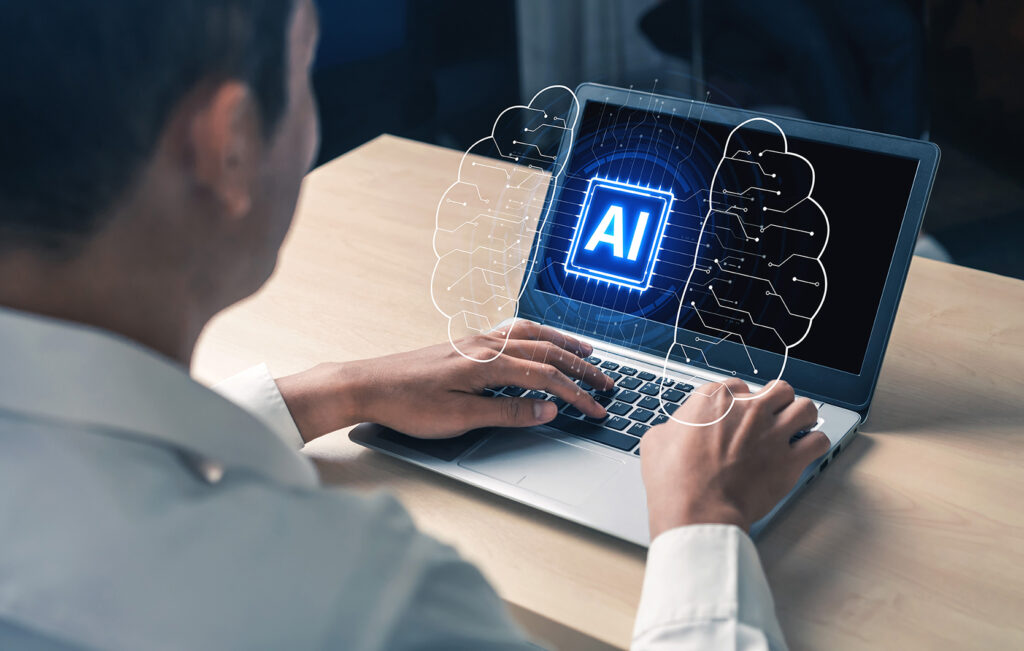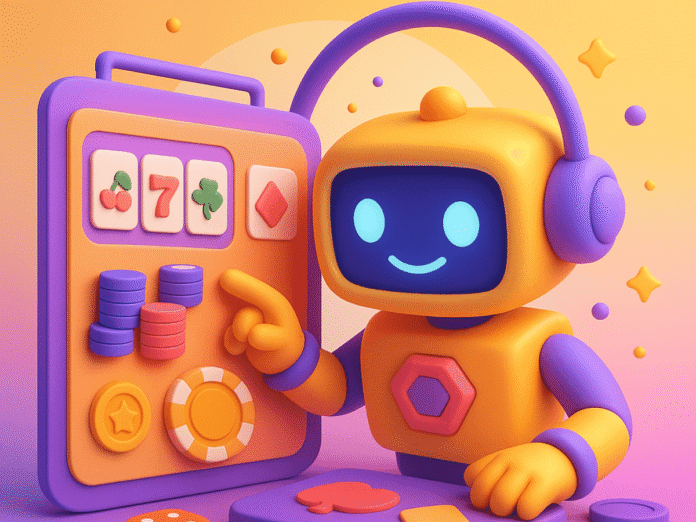Artificial intelligence (AI) has rapidly become the backbone of modern digital experiences — from the shows Netflix recommends to the ads you see on social media. But one of the most fascinating (and sometimes controversial) uses of AI is happening in the world of online casinos. Today, many casino platforms use AI not just to enhance gameplay, but to learn your preferences, predict your next move, and personalize your entire experience — from bonuses to game suggestions.
In this article, we’ll explore how AI learns your play style, the benefits and drawbacks of such personalization, and what it means for the future of online gambling.
Understanding AI in Online Casinos
AI, at its core, refers to systems that can analyze data, recognize patterns, and make decisions — often faster and more accurately than humans. In online casinos, AI functions as a data-driven personalization engine, constantly observing how you play, what you enjoy, and when you log in.
Every click, bet, or spin generates valuable data. Casinos collect this data and use machine learning algorithms to identify patterns. For instance:
Do you prefer slots or poker?
Do you tend to play for long sessions or quick bursts?
How much do you usually wager?
Which themes (like fantasy, adventure, or classic Vegas) do you gravitate toward?
By analyzing this behavior, the casino’s AI system builds a unique player profile. This profile then guides how the platform tailors its offerings — much like how Spotify creates your personalized playlists or YouTube curates your feed.
How Casinos Learn Your Play Style
AI learning in casinos typically follows three key steps:
- Data Collection
The moment you register and start playing, the platform begins gathering information. This can include:
Game choices: Which games you try and how often.
Time patterns: When you log in, how long you stay, and at what pace you play.
Betting behavior: Your average stake size and risk tolerance.
Reaction to offers: Which promotions or bonuses you redeem.
Even subtle actions — like hovering over a game without clicking — can feed the data model. This extensive data collection lays the groundwork for personalization.
- Pattern Recognition through Machine Learning
Machine learning models analyze your data alongside that of thousands (or millions) of other players. The AI system identifies clusters of similar users. For example, if you often play themed slot games and make small, steady bets, the AI might group you with other casual players who prefer entertainment over high stakes.
This clustering allows the system to predict your preferences. The next time a new game launches, you might see it featured on your dashboard before anyone else — because AI predicts you’ll enjoy it.
- Adaptive Personalization
AI doesn’t stop learning. As your habits change, the system continuously updates your player profile. If you shift from casual play to competitive poker, your bonuses, recommendations, and notifications will evolve accordingly.
This adaptive system ensures the casino always feels “in tune” with your behavior — an impressive feat that keeps players engaged.
Where AI Personalization Appears in Online Casinos

AI affects nearly every corner of the online casino experience. Here are the main areas where it shines:
- Personalized Game Suggestions
Instead of scrolling through hundreds of games, players now see recommendations perfectly matched to their taste. For instance, if you frequently play Egyptian-themed slots, the AI might suggest other ancient-history games. Similarly, if you enjoy blackjack, the system might introduce new table variants or tournaments.
This targeted approach saves players time and creates a smoother, more enjoyable experience.
- Tailored Bonuses and Promotions
AI helps casinos move away from generic “welcome bonuses.” Instead, they offer custom promotions that align with your play style.
For example:
Frequent slot players might receive free spins on their favorite games.
High-rollers could be offered cashback or VIP rewards.
Casual players might see low-risk deposit matches to encourage continued play.
By learning what motivates each player, casinos can present incentives that feel personal — and much harder to resist.
- Dynamic Difficulty and Engagement
Some advanced casino games use AI to adjust difficulty or pacing. If a player loses repeatedly, the AI might recommend lower-stakes games or provide “near-miss” wins to keep engagement high. This adaptive balancing makes games feel exciting without overwhelming the player.
- Customer Support and Chatbots

AI-driven chatbots can provide 24/7 support, answering common questions or even helping manage responsible gaming settings. These bots are trained to recognize sentiment — for instance, detecting frustration or confusion — and escalate the issue to human agents when needed.
- Fraud Detection and Player Safety
AI personalization isn’t only about entertainment. It also strengthens security and fair play. Machine learning can detect unusual betting patterns that may indicate fraud, collusion, or problem gambling. Some systems even monitor for emotional distress, using behavioral data to trigger responsible gambling alerts.
The Pros of AI Personalization
When used responsibly, AI-powered personalization offers numerous benefits to both players and platforms.
- Faster Navigation and Convenience
With so many games available, finding one you enjoy can be daunting. AI cuts through the clutter, presenting only relevant options. Whether you love progressive jackpots or live dealer games, AI ensures your favorites are always front and center.
- Tailored Offers and Enhanced Rewards
Personalized bonuses make players feel valued. Instead of receiving random promotions, users get offers that match their habits — leading to better satisfaction and engagement.
- More Enjoyable and Immersive Gameplay
AI can curate an experience that aligns with your preferences, from game aesthetics to music themes. This makes the gaming experience feel immersive, as if the platform was designed just for you.
- Safer Environment
AI also plays a protective role. By monitoring player behavior, it can detect patterns of addiction or unusual spending. Casinos can then intervene with reminders, spending limits, or cooling-off periods. This makes online gambling more sustainable and transparent.
The Cons and Ethical Concerns
While AI brings convenience and excitement, it also introduces potential downsides that both players and regulators must address.
- Risk of Overspending
Personalized offers can tempt players to spend more than intended. When AI knows your emotional triggers and betting patterns, it can tailor offers that are too persuasive. Without strong self-discipline or built-in limits, this can lead to excessive gambling.
- Data Privacy Issues
AI systems rely on massive data collection. This raises questions about how player data is stored, shared, and protected. If mishandled, sensitive information could be exposed or misused.
- Reduced Player Autonomy
When everything is personalized, you might feel as though you’re in control — but the system is actually guiding your behavior. The constant nudges toward “just one more game” or “your perfect bonus” can subtly influence decision-making.
- Algorithmic Bias
AI models are only as good as their training data. If biases exist in the system — for example, over-rewarding high spenders — certain player groups may receive unfair advantages or incentives.
Balancing Personalization and Responsibility
The best online casinos are those that balance personalization with player protection. Many platforms now integrate responsible gaming tools alongside AI algorithms, such as:
Deposit and loss limits
Playtime reminders
AI-powered risk scoring to detect problem gambling behavior early
Regulatory bodies are also stepping in, requiring transparency in how AI systems make decisions. The goal is to create an ecosystem where personalization enhances fun — not exploitation.
The Future of AI in Online Casinos
Looking ahead, AI’s role in online casinos will only grow. We may soon see:
Emotion recognition technology that adjusts games based on player mood.
Predictive retention models that identify when a player might leave — and intervene with offers or suggestions.
Cross-platform personalization, where your preferences carry over from desktop to mobile to virtual reality (VR) casinos.
Ultimately, AI will help shape a more seamless, intelligent, and connected gaming experience. The challenge lies in ensuring that the technology remains fair, transparent, and ethical.
Conclusion
AI-powered personalization has transformed online casinos into dynamic, player-centered environments. By learning your play style, these platforms can deliver faster navigation, better rewards, and immersive entertainment.
However, with great personalization comes great responsibility. The same technology that enhances your experience can also encourage overspending or privacy risks if unchecked.
As AI continues to evolve, both players and casinos must strive for a balance — embracing the convenience of tailored gaming while staying mindful of its potential pitfalls. In the end, the smartest move isn’t just the algorithm’s — it’s yours.
Sources:












